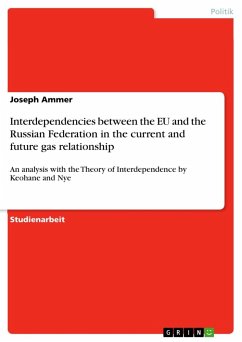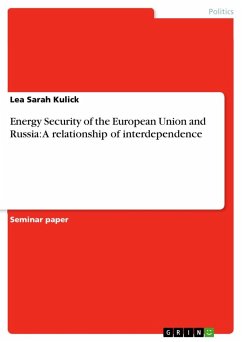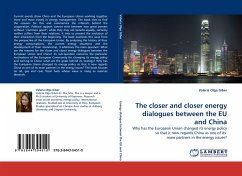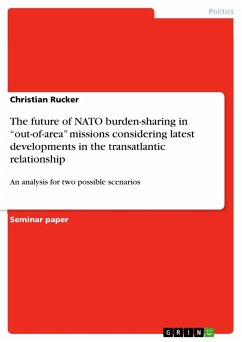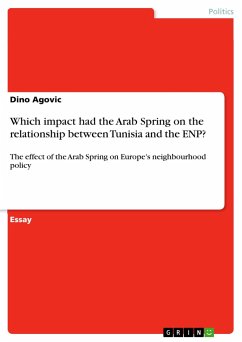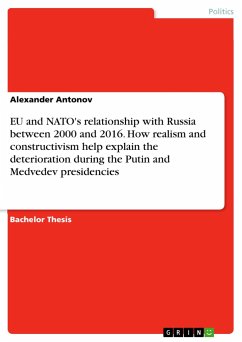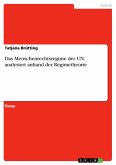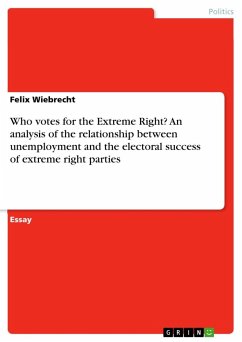Studienarbeit aus dem Jahr 2016 im Fachbereich Politik - Thema: Europäische Union, , Sprache: Deutsch, Abstract: The following term paper aims to assess the current state of interdependencies as well as future developments in the gas relations between the European Union and Russia. The theoretical approach therefor is framed by Keohane and Nye's Theory of Interdependence. It is used to analyze (a) the prevailing gas supply situation of the European Union, (b) the significance of the European gas demand for the Russian Federation, (c) diversification opportunities for both parties and (d) the progress and effects of a common EU approach in gas negotiations with Russia. It becomes evident that the EU's Energy security is very reliant on consistent gas supplies. Yet, Russia can only slightly exploit this sensitivity dependency as a source of geopolitical power vis-à-vis the EU, because its own economy depends on Europe's investments and the revenue from gas exports to EU countries. The analysis of the diversification potentials reveals that the mutual dependence will remain strong in the near future. In the medium term the EU has to expand its range of suppliers by investing in LNG infrastructure and the Southern Corridor. In contrast, Russia tries to get hold of the Union's diversification plans, as exemplified by the competition between the Turkish Stream and TANAP pipeline projects. A common European approach towards gas negotiations with Russia would mainly be beneficial for the bargaining position of the Union's eastern members, which are highly sensitive to Russian gas deliveries. Russia currently takes advantage of this by negotiating favorable long term contracts. However, contradictory positions between East and West complicate the realization of a joint European negotiation process. Viable and useful transitional measures would include regional trade associations and a revision of the current information exchange mechanism, providing greater competencies for the European Commission to gain insight in Member states' bilateral negotiations with Russia.

